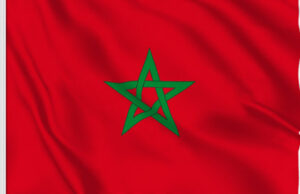Share
- Presentation of the book and the authors
The book “Sulla Pelle Viva. Nardò: la lotta autorganizzata dei braccianti immmigrati” (by Brigate di solidarietà attiva, Gianluca Nigro, Mimmo Perrotta, Devi Sacchetto and Yvan Sagnet), which can be translated as “On Living Skin. Nardò: the self-organized struggle of migrant agricultural laborers”, was published in 2012 and tells the story of the strike of 400 migrant farm workers in Nardò, a town in southern Italy.
The story of this major event in the struggle for migrant workers’ rights was produced by Brigate di Solidarietà Attiva, a federation of associations created after the L’Aquila earthquake in 2009 that provides aid to people independently of institutional channels and supports, especially, migrants’ rights in Italy. It was co-written by several activists and spokespersons of the strike. First of all Gianluca Nigro, social worker, activist against illegal employment and author of several essays on migrant work in agriculture and on the right of asylum in Italy. Mimmo Perrotta is a scholar and activist author of numerous papers and articles on the conditions the social transformations occurring in Italian agriculture and the Euro-Mediterranean food system. Devi Sacchetto is a professor and scholar at the University of Padova, specialist in migration issues and author of papers on agricultural workers in southern Italy. Finally Yvan Sagnet is a Cameroonian activist and writer, known for founding the charity No Cap and his work against the exploitation of workers in the Italian agricultural industry and was spokesperson for the strike.
Together in this book, they gather several essays in which they reconstruct the dynamics that first led and then sustained the strike thanks to the material they collected as direct witnesses of the strike. Thanks to their work we will be able to present here the course of the strike and its claims against the corporalato system to understand why it was so important in the fight against illegal employment and exploitation of migrant workers in Italy.
- The strike
The triggering event of this major strike took place on July 30, 2011 when a group of about 40 African migrants refused to continue picking tomatoes in the fields of Nardò. They decided to return to their tent city of Masseria Boncuri, established to accommodate the seasonal agricultural laborers, and erected a street blockade with other workers in order to prevent trucks from coming and going. Their initiative grew and they were joined during the first days of the strike by up to 350 workers – most of them without work permits – and it lasted 2 weeks.
The demands of the strikers were modest: regular work contracts, recruitment by the local employment agency and not by the caporali, the possibility to carry identity papers, more controls by the authorities, better living conditions. Their main demand was to be paid 6 euros instead of 3.50 euros for a container of picked tomatoes.
Through pressure and threats from the caporali, many strikers returned to work after a week, but a group of about thirty workers resisted and maintained the strike effort by mounting street blockades with piled-up stones for six consecutive days, ou encore en filling up complains against the caporali.
After more than a week on strike, arbitration talks including the strikers and associations started, initially in the prefecture in Lecce, then in the regional administration in Bari. Most of their demands in terms of work contracts and wages have not really been met but the most concrete result for the struggling migrants was the passing of the legal decree on 12th of August, which pronounced the caporalato to be a punishable offence. This is an important step, and although it won’t dissolve the current system in agriculture, it will mitigate its most violent forms.
- What is the corporalato, also know as the « gangmaster system »?
“Il corporalato” is a phenomenon that is very present in Italy, where the caporali mediate between the supply and demand of labor in a specific geographical area and sector, in the sense that they are in charge of selecting, on behalf of the employers, the labor needed for the activities, choosing among the aspiring workers. They are the ones who take them to their workplaces and bring them back at the end of their working day. They are the ones who negotiate with the employers and set the price of the workers’ wages. However, most of these activities take place informally, as the majority of agricultural workers do not have work permits in Italy. However, the agricultural sector is in high demand for labor and migrant workers represent a cheap labor force and are willing/forced to work in conditions that locals would not address.
In this context, the caporali have become indispensable to agricultural production, recruiting these irregular workers on a daily basis. However, these practices often turn exploitative, with workers reporting extremely low wages, caporali holding passports and pressuring and sometimes even abusing workers with a foreign recruitment process that borders on human trafficking in some cases. It is against this kind of practice that the strikers of Nardò have risen up.
- Why is the Nardò strike so important?
What the book highlights is that this strike represents a turning point in the struggle against illegal employment and exploitation of labor, not necessarily for the achievement of the strikers’ demands but for the nature of the strike. In fact, it was the first self-organized strike by migrants in southern Italy and it resulted in a change of policies. The strikers have positioned themselves as actors and interlocutors in the negotiations and not as victims as they tend to be presented. Through their mobilization they succeeded in questioning the consensus on their terrible working and living conditions. But above all they have given, to the migrant workers of Nadò but also of the rest of Italy, a clearer consciousness about their own power.


